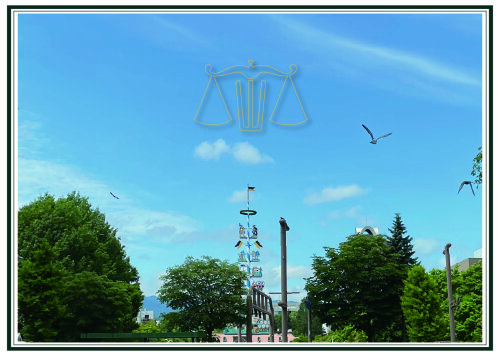Best Nonprofit & Charitable Organizations Lawyers in Japan
Share your needs with us, get contacted by law firms.
Free. Takes 2 min.
Or refine your search by selecting a city:
List of the best lawyers in Japan
About Nonprofit & Charitable Organizations Law in Japan
Nonprofit and charitable organizations in Japan are primarily governed by specific legal frameworks designed to encourage social welfare activities while ensuring financial and operational transparency. These organizations are typically established as Nonprofit Corporations (NPOs), Public Interest Incorporated Associations or Foundations, or Social Welfare Corporations. The primary legislation governing these entities includes the Act on Promotion of Specified Non-profit Activities, the Act on Authorization of Public Interest Incorporated Associations and Public Interest Incorporated Foundations, and the Social Welfare Act. Operating a nonprofit or charitable organization in Japan involves navigating these regulations efficiently to maintain both legal compliance and the trust of stakeholders and the public.
Why You May Need a Lawyer
There are various scenarios where legal assistance becomes essential for nonprofit and charitable organizations in Japan:
- Formation and Registration: Setting up a nonprofit involves navigating complex registration procedures. Legal guidance is crucial to ensure all documentation is correctly prepared and submitted.
- Compliance and Governance: Nonprofits must adhere to stringent governance standards. Lawyers can help in drafting bylaws, policies, and ensuring compliance with reporting obligations.
- Taxation Issues: Although nonprofits may be eligible for tax exemptions, understanding and applying the tax laws correctly is critical, necessitating expert legal advice.
- Contractual Agreements: Drafting, reviewing, and negotiating contracts related to funding, partnerships, or employment may require legal expertise.
- Dispute Resolution: Legal support is often needed when disputes arise involving donors, beneficiaries, or other stakeholders.
- Regulatory Changes: Lawyers can help organizations adapt to legal and regulatory changes swiftly, minimizing risks.
Local Laws Overview
Japan's legal system has distinct provisions relating to nonprofit and charitable organizations. Key aspects include:
- NPO Act: This law facilitates the establishment of NPOs, requiring organizations to engage in specified non-profit activities for public interest. NPOs must present annual financial reports and activity reports to the authorities.
- Public Interest Corporations: Organizations that aim for public necessity can obtain recognition as Public Interest Corporations, which offers taxation benefits but imposes stricter operational transparency and accountability requirements.
- Registration Requirements: Nonprofits must register with the competent authority and abide by both local and national legislation to maintain operational legitimacy.
- Financial Audits: Depending on the size and nature of the organization, periodic financial audits may be required to ensure transparency.
- Licensing: Some activities require additional licenses or permits, which legal counsel can help navigate and obtain.
Frequently Asked Questions
What is an NPO in Japan?
A Nonprofit Organization (NPO) in Japan is a legal entity formed to conduct activities that benefit the public interest, such as education, community development, and social welfare, without the intention of making a profit.
How do I register a nonprofit organization in Japan?
Registration involves submitting a detailed application to the local prefectural government office, including a clearly defined purpose, articles of association, and documentation of organizational structure and governance.
What are the tax benefits available for nonprofit organizations in Japan?
Qualifying nonprofit organizations may receive tax benefits, including deductions and exemptions on income taxes, property taxes, and inheritance taxes. Recognition as a Public Interest Corporation is often required to access these benefits.
Can foreigners establish a nonprofit in Japan?
Yes, foreigners can establish NGOs and NPOs in Japan, provided they comply with the country's legal requirements, including foreign registration regulations and visa conditions.
What accounting standards are required for nonprofits?
Nonprofit organizations in Japan must follow specific accounting standards designed to ensure transparency, often requiring detailed financial statements and periodic audits depending on their revenue size and nature.
Do nonprofit organizations need a board of directors in Japan?
Yes, nonprofits in Japan typically require a board of directors, which plays a critical role in governance and decision-making. The law mandates specific board structures depending on the type of nonprofit.
Are there restrictions on political activities for nonprofits?
Nonprofits are generally prohibited from engaging in direct political activities; however, they may take part in activities aimed at public welfare policy improvements.
How long does the registration process take for a nonprofit in Japan?
The registration process can take several months, depending on the completeness of submitted documents, the responsiveness of the applicants, and the workload of the regulatory authorities.
Can an NPO be dissolved in Japan?
Yes, dissolution can occur through a decision by the general assembly, expiration of the fixed term, merger, or bankruptcy. Regulations stipulate procedures to properly handle remaining assets.
What reporting obligations do nonprofits have in Japan?
Nonprofits must submit annual financial and activity reports to their respective prefectural government office to demonstrate ongoing compliance with operating regulations.
Additional Resources
For further information and assistance, consider the following resources:
- Japan NPO Center: Provides information and resources about running effective nonprofit organizations in Japan.
- Prefectural Government Offices: Offers information on registration, ongoing compliance, and legal obligations specific to each prefecture.
- Tax and Legal Advisory Services: Engaging with firms specializing in nonprofit organizations can provide insights into compliance and strategic planning.
Next Steps
If you need legal assistance for a nonprofit or charitable organization in Japan, consider these steps:
- Consult a Specialized Lawyer: Seek out attorneys with expertise in nonprofit law in Japan to get tailored advice for your situation.
- Prepare Your Documentation: Gather all necessary documentation related to your organization, including bylaws, financial records, and previous communications with authorities.
- Schedule a Legal Consultation: Set up a meeting with legal counsel to discuss your specific needs, ensuring all questions and concerns are addressed comprehensively.
- Follow Advice Diligently: Once you've received legal guidance, follow through with the recommended actions to ensure your organization remains on firm legal footing.
Lawzana helps you find the best lawyers and law firms in Japan through a curated and pre-screened list of qualified legal professionals. Our platform offers rankings and detailed profiles of attorneys and law firms, allowing you to compare based on practice areas, including Nonprofit & Charitable Organizations, experience, and client feedback.
Each profile includes a description of the firm's areas of practice, client reviews, team members and partners, year of establishment, spoken languages, office locations, contact information, social media presence, and any published articles or resources. Most firms on our platform speak English and are experienced in both local and international legal matters.
Get a quote from top-rated law firms in Japan — quickly, securely, and without unnecessary hassle.
Disclaimer:
The information provided on this page is for general informational purposes only and does not constitute legal advice. While we strive to ensure the accuracy and relevance of the content, legal information may change over time, and interpretations of the law can vary. You should always consult with a qualified legal professional for advice specific to your situation.
We disclaim all liability for actions taken or not taken based on the content of this page. If you believe any information is incorrect or outdated, please contact us, and we will review and update it where appropriate.
Browse nonprofit & charitable organizations law firms by city in Japan
Refine your search by selecting a city.















